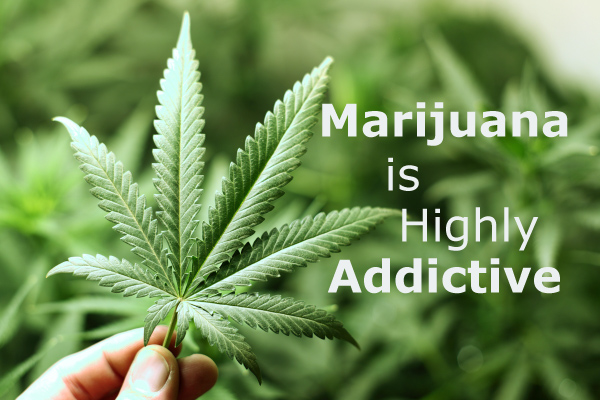Is marijuana addictive?
Humans can become addicted to just about anything: Drugs, alcohol, gambling, or collecting Beanie Babies. However, repeatedly seeking something out because you enjoy it is not necessarily addiction in the medical sense.
Compared to other substances, marijuana ranks low in addictive potential. A large-scale survey in 1994 found that only 9% of those who had used the drug fit the criteria for dependence/addiction. This compares to 15% for alcohol, 17% for cocaine, 23% for heroin and 32% for nicotine. While defining “addiction” is somewhat a matter of debate, the facts show that marijuana is near the very bottom of the scale.
Marijuana also has a high “discontinuation rate” – unlikely if it were strongly addictive. A 1993 drug abuse survey by the U.S. Dept. of Health and Human Services revealed that 34% of Americans over the age of 12 had tried it, but only 9% had used it in the past year, 4% in the past month and less than 3% in the past week.
Frequent marijuana users who quit do experience withdrawal symptoms, but they are considered mild. Jack Henningfield (National Institute of Drug Abuse) and Neal Benowitz (University of California) published a paper in the New England Journal of Medicine ranking six substances by the severity of withdrawal symptoms. Both scientists ranked Marijuana as the least severe – even lower than caffeine.
The myth of marijuana’s addictiveness has mostly been perpetuated by three groups: 1) Drug treatment centers, who want more customers, 2) Drug users, who want to identify as “addicts” to avoid criticism and punishment, and 3) Drug legalization opponents, who want to further their agenda.
This is not to say that marijuana is harmless – marijuana has long-term, often permanent effects on the human brain, including memory loss and IQ reduction. Street dealers may lace the drug with cocaine, PCP, formaldehyde, or anything else they want, making it more dangerous – and addictive.




